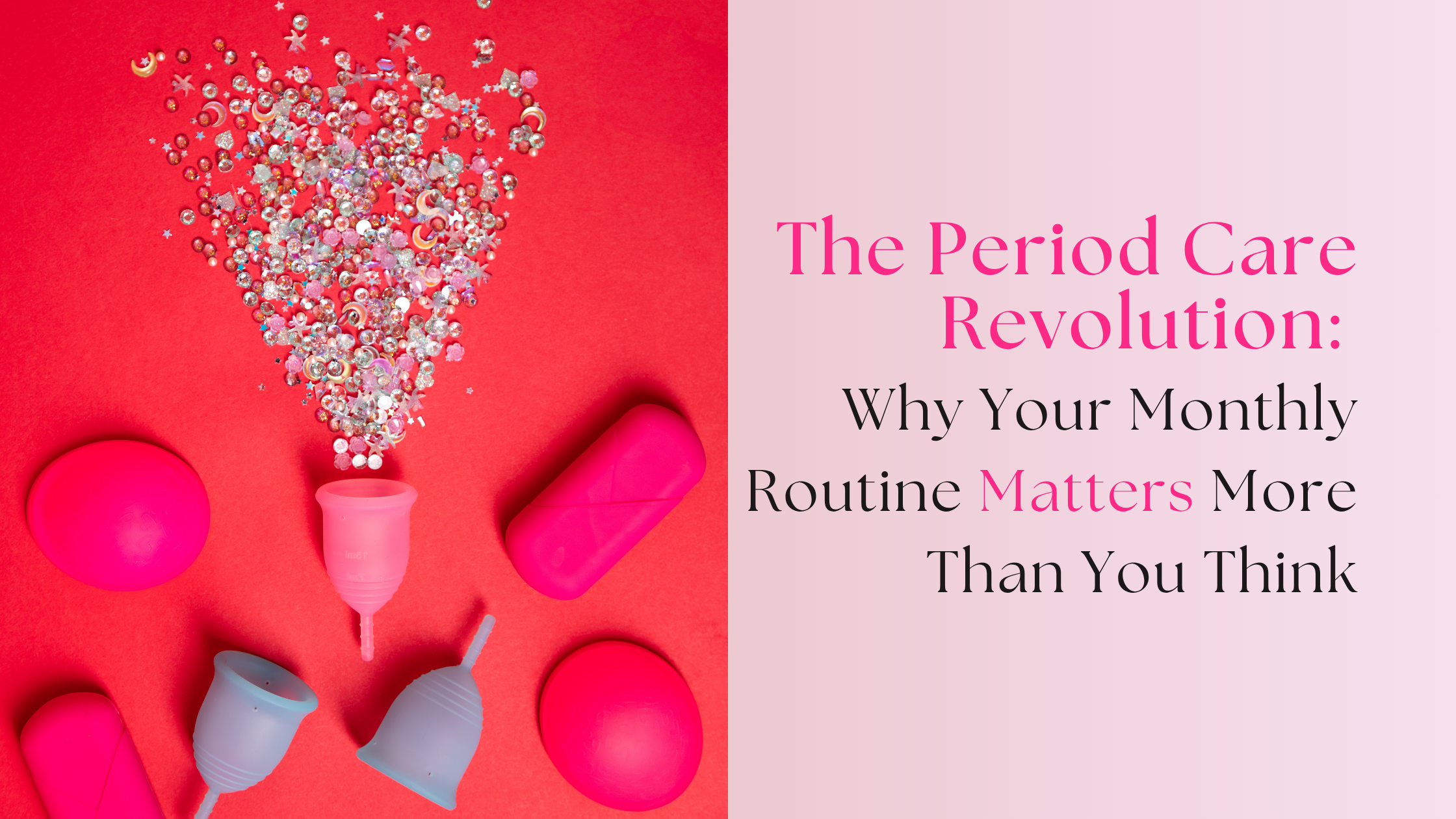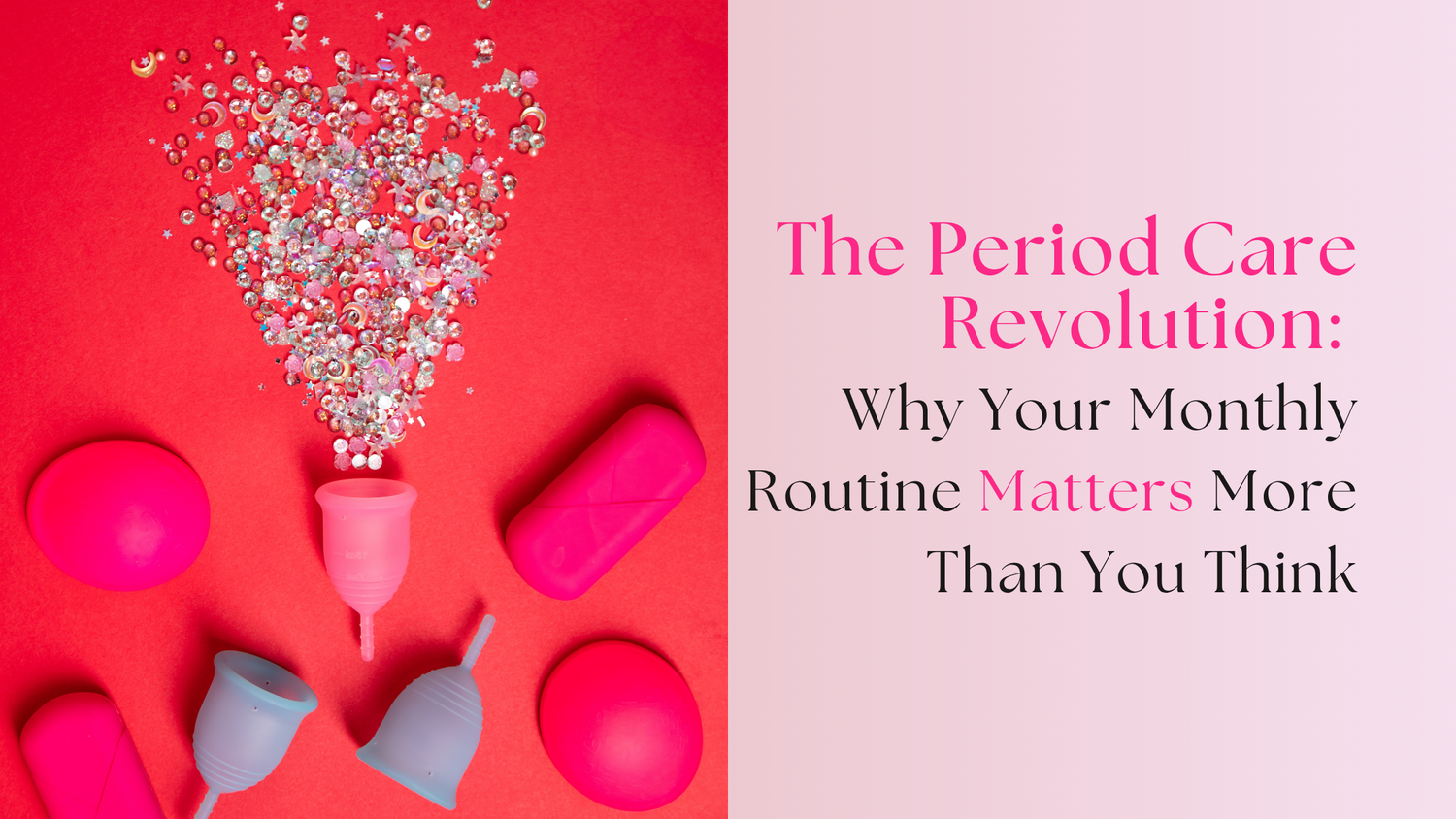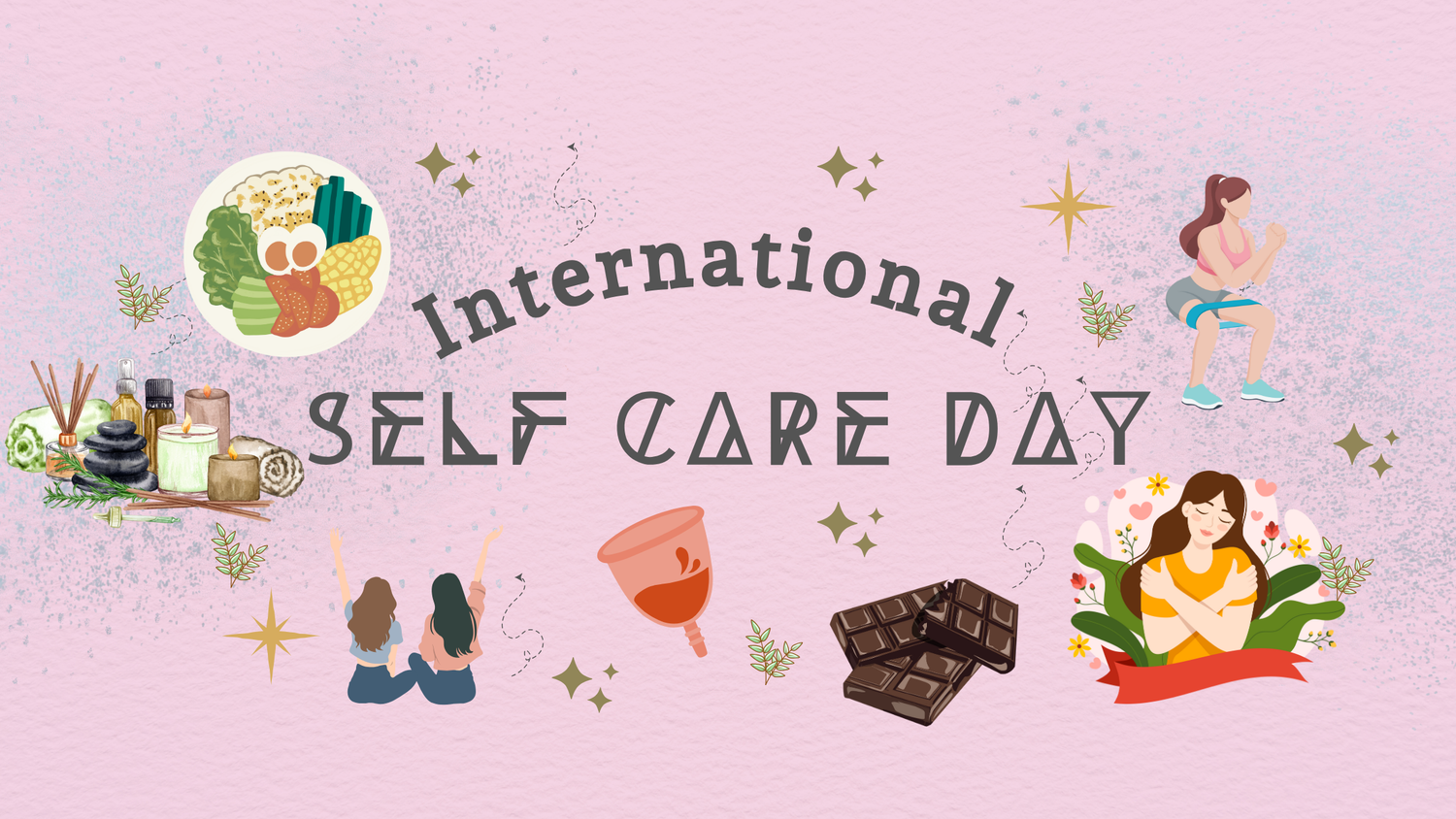As co-founders of The Khush Place, we've had countless conversations about periods, hormones, and everything in between. But there's one conversation we think needs to happen more often: the environmental and health impact of conventional period products.
This Plastic Free July, we want to share some eye-opening statistics and introduce you to alternatives that are better for both your body and the planet. Because when it comes to period care, small changes can have a massive impact.
The Shocking Truth About Period Waste
Here's a statistic that stopped us in our tracks: the average woman uses over 11,000 disposable menstrual products in her lifetime. To put that in perspective, if you stacked all those tampons and pads, they'd reach the height of a 4-storey building!
In Australia alone, we dispose of approximately 5.8 billion period products every year. That's enough to fill the MCG stadium 12 times over. These products, made primarily from plastic and synthetic materials, can take up to 800 years to decompose—meaning the first disposable pad ever thrown away is still sitting in a landfill somewhere.
As sisters who've always been passionate about both women's health and environmental sustainability, these numbers made us realise that our monthly routines have a much bigger impact than we'd ever considered.
The Hidden Health Impact of Conventional Products
The environmental statistics are staggering, but there's another side to this story that hits closer to home: what these products might be doing to your health.
Most conventional tampons and pads contain a cocktail of synthetic materials and chemicals, including:
- Plastics and synthetic fibres that can irritate sensitive skin
- Fragrances and dyes that may disrupt your natural pH balance
- Bleaching agents used to create that pristine white appearance
- Chemical adhesives in pad backing that can cause allergic reactions
Amy's lightbulb moment came during her PCOS journey: "I was so focused on balancing my hormones naturally, but I hadn't considered that the products I was using every month might actually be working against me. When I learned about the potential hormone-disrupting chemicals in conventional period products, it felt like another piece of the puzzle clicked into place."
The Science of Disruption
Research is increasingly showing connections between synthetic chemicals and hormonal health. Many conventional period products contain endocrine-disrupting chemicals (EDCs) that can interfere with your body's natural hormone production and regulation.
These chemicals can:
- Mimic natural hormones in your body
- Block hormone receptors
- Alter hormone production and metabolism
- Affect the transport of hormones throughout your body
For women already dealing with hormonal imbalances like PCOS, endometriosis, or irregular cycles, introducing additional disruptors through period products seems counterproductive to healing.
Enter the Game-Changer: Menstrual Discs
This is where menstrual discs come in—a revolutionary alternative that's transforming how women experience their periods while dramatically reducing environmental impact.
Unlike tampons that absorb everything (including your body's natural moisture), menstrual discs collect menstrual fluid without disrupting your body's delicate ecosystem. Made from medical-grade silicone, they're:
- Body-safe: No chemicals, fragrances, or synthetic materials
- Long-lasting: One disc can replace thousands of disposable products over its lifetime
- Comfortable: Many users report they can't feel them once properly inserted
- Leak-resistant: When positioned correctly, they provide up to 12 hours of protection
- Eco-friendly: Dramatically reduce waste and environmental impact
Heidi's experience with menstrual discs was transformative: "Not only did I reduce my environmental footprint, but I noticed less irritation and cramping. It felt like my body could finally breathe during my period instead of fighting against synthetic materials."
Beyond Period Products: Creating a Plastic-Free Cycle
Making the switch to reusable period care is just the beginning. Here are other plastic-free swaps that can support both your health and the environment:
Ditch Plastic Packaging: Choose supplements and health products with minimal, recyclable packaging. At The Khush Place, we're committed to sustainable packaging that doesn't compromise your health goals.
Natural Pain Relief: Instead of reaching for plastic-packaged pain relievers, consider natural alternatives like heat therapy, gentle movement, or targeted nutritional support.
Chemical-Free Personal Care: Swap plastic bottles of conventional products for package-free alternatives like solid shampoo bars, bamboo toothbrushes, and natural deodorants.
Mindful Material Choices: Choose organic cotton or bamboo products when disposables are necessary, and look for plastic-free applicators and packaging.
The Ripple Effect of Conscious Choices
When we started The Khush Place, our mission was to transform conversations around women's health from silence to celebration. Part of that celebration involves making choices that honour both our bodies and our planet.
Every woman who switches to reusable period care prevents approximately 200 disposable products from entering landfills each year. But the impact goes beyond waste reduction—it's about taking control of your health, understanding your body better, and refusing to accept that managing your period should come at the expense of your wellbeing or the environment.
Busting Myths About Reusable Period Care
Myth 1: "It's too complicated" Modern menstrual discs are designed for easy insertion and removal. Most women get the hang of it within a cycle or two, and many say they'll never go back to disposables.
Myth 2: "It's not hygienic" Medical-grade silicone is naturally antimicrobial and can be sterilised between uses. Many users report fewer infections and less irritation compared to conventional products.
Myth 3: "It's too expensive" While the upfront cost is higher, the long-term savings are significant. A quality menstrual disc pays for itself within months and saves hundreds of dollars over its lifetime.
Myth 4: "They don't work for heavy flows" Many menstrual discs actually hold more fluid than tampons and can be safely worn for longer periods, making them ideal for heavy flow days.
Making the Transition: What to Expect
Switching to plastic-free period care is a journey, and like any change, it takes time to adjust. Here's what many women experience:
Cycle 1: Learning curve with insertion and removal, but often immediate relief from irritation Cycle 2-3: Increased confidence and comfort with the new routine Cycle 4+: Many women report feeling more connected to their cycle and experiencing less discomfort overall
Your Period, Your Planet, Your Choice
This Plastic Free July, we invite you to consider how your monthly routine aligns with your values. Every small change counts, and every woman who makes the switch to sustainable period care is part of a larger movement towards better health and environmental responsibility.
Your period is a natural part of life—shouldn't your period care be natural too?
Remember, you don't have to make all these changes at once. Start with what feels manageable and build from there. The most important thing is making informed choices that feel right for your body and lifestyle.
Ready to explore sustainable period care? Check out our menstrual disc collection and discover how small changes can make a big impact. Follow us @the.khush.place for more tips on living in harmony with your cycle.





